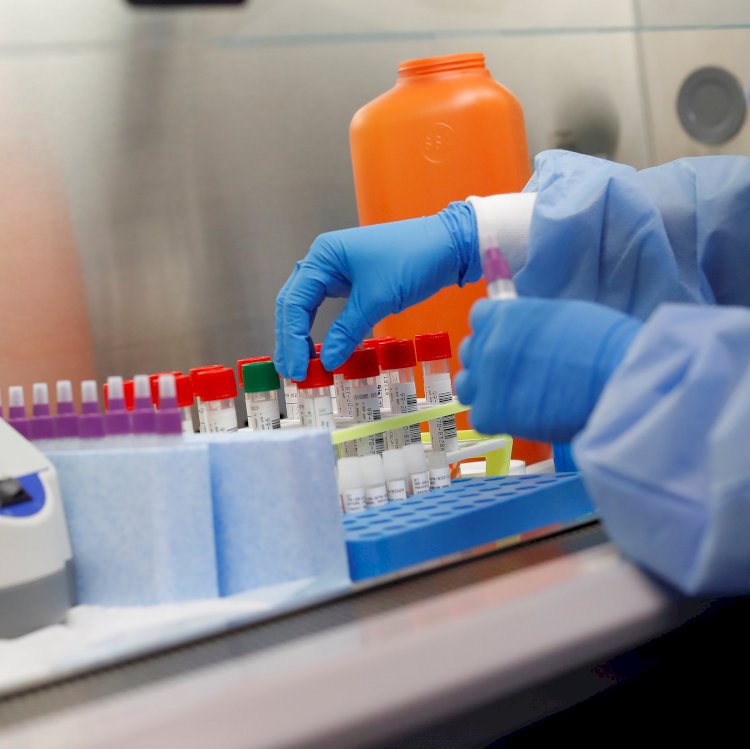How Ghana is faring against other African Countries in Covid-19 Testing and Response
So far, 1.2 million tests have been conducted in Africa since the start of the epidemic.

African countries have started to lift lockdown restrictions, in spite of fears that coronavirus infections could spike.
The World Health Organization (WHO) has cautioned countries to consider their ability to test and trace before lifting lockdown.
According to Africa Union’s Centre for Disease Control and Prevention (Africa CDC), the continent’s Covid-19 case count as of May 14, 2020 stood at 75,350 with 2,559 fatalities.
So far, the entire region has conducted 1.2 million tests since the start of the epidemic.
Countries with the highest testing record are; Mauritius ( who have tested nearly 70,000 people which corresponds to about 54,000 tests per million people since the overall population stands at 1.3 million people), Djibouti (15,490 tests per million people), South Africa and Ghana (the latter tested 155,201 people, thus nearly 5,000 tests per million people).
Critics have still raised concerns about insufficiency of covid-19 tests in Africa.
Below is an appraisal of African countries' response to the pandemic.
Ghana - emphasis on test and trace
The West African nation has put a great deal of emphasis on testing and tracing Covid-19, choosing not to implement harsh lockdown measures to protect the economy.
President Nana Akufo-Addo has eased Ghana's lockdown measures and emphasised the need to test, track and trace coronavirus cases, instead of keeping people at home. The country, much smaller than its neighbour Nigeria, has 11 testing centres, compared with 24 in Nigeria.
The government is using a "pool testing" approach which involves combining a group of samples and testing them together. Only if that produces a positive result will individual samples be tested.
Using this method, Ghana has one of the highest testing rates on the continent, with just over five per thousand of the population - a total of around 160,000 tests.
However, a recent incident at a fish factory, where one worker infected 533 others, has raised concerns about rising infections.
READ ALSO:
Like HIV, Coronavirus “May Never Go Away” – WHO Warns

South Africa - high testing but hitting constraints
South Africa has enforced one of the strictest lockdowns anywhere on the continent and has achieved a relatively high level of testing.
The number of tests being carried out - around 16,000 a day - is considerably higher than other African country, but still a long way short of European levels.
Health Minister Zweli Mkhize has raised concerns over the country's ability to scale up testing.
"In relation to the issue of tests, I've called around both public and private laboratories - they are all suffering from the constraints of the availability of test kits,"
Nigeria - a very low testing rate
Africa's most populous nation has now begun to relax some of its lockdown measures despite having one of the lowest testing rates on the continent,
It's is a major challenge in country of 200 million people, and there are a limited number of laboratories able to process tests.
Chikwe Ihekweazu, director general for the Nigeria Centre for Disease Control, said in late April: "I would rather go a little bit slower and get it right than speed into a situation that we will end up regretting."
The Nigerian government says it's focused on clusters of outbreaks rather than mass testing of the population.
The commercial capital Lagos and northern state Kano are the worst-hit areas - and these regions do have the most laboratories for processing tests.
However, the Nigerian Medical Association has expressed concern that the low rate of testing means the real incidence of the virus remains unknown in the country.
East Africa - shortages of testing materials
Kenya has been criticised for its lack of testing. The government says that a global shortage of testing supplies has affected the country's ability to conduct tests.
Tanzania hasn't released testing data since the end of April. President John Magufuli has said that imported tests have been faulty, claiming that samples from a goat and a fruit tested positive for the virus.
There are concerns that Tanzania, which has chosen not to enforce strict lockdown measures, could be facing a very serious, but as yet unidentified, outbreak. The US government recently warned that the coronavirus threat in Dar es Salaam, Tanzania's main city, is "extremely high"
Uganda has carried out just over 60,000 tests, but the Uganda Virus Research Institute has said they are facing shortages of testing supplies. The government says it's because of the need for increased testing on truck drivers (a suspected source of virus transmission across the region), limited supplies from abroad and delays in delivery.
Two of the Africa's smaller nations, Mauritius and Djibouti, have achieved the highest testing rates on the continent.
SOURCE: BBC






































